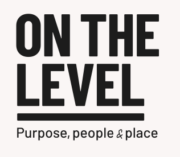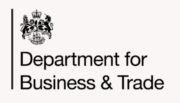How to write a trans-inclusive policy for your organisation
Are you looking to create or improve a trans-inclusive policy for your organisation? This insightful and practical session brought together speakers sharing how they went about it.

Creating a trans-inclusive workplace: Lessons on policy, culture and courage
In the wake of the UK Supreme Court’s recent ruling on the definition of “sex” under the Equality Act, organisations across the country have found themselves navigating a more complex and, at times, hostile legal and political landscape. The online event, hosted by Pride in Leadership and chaired by Claire Ebrey, brought together two leading voices, Emma Cusdin and Chrysta Poppitt, to offer a steady, practical guide through the noise.
Their message was clear: inclusion doesn’t begin or end with a court case. It begins with values.
Emma Cusdin, Director of the consultancy Global Butterflies and a trans woman herself, opened the session with a summary of the Supreme Court decision in For Women Scotland v Scottish Ministers. The Supreme Court, in its judgement, sought to clarify the protected characteristic of “sex” and concluded that it refers to biological sex. But, as Emma stressed, many of the protections for trans and non-binary people under the Equality Act remain intact.
“Don’t panic,” she advised. “Take a breath. Seek legal advice. But more importantly, come back to your values. Who are you as an organisation?”
That focus on organisational values became a golden thread throughout the conversation.
Chrysta Poppitt, Senior Director at planning consultancy Turley, shared how her organisation introduced a transitioning at work policy several years ago, not in response to crisis, but because it was the right thing to do. It began, she recalled, with a question from a colleague: “Why don’t we have one?”
That spark set off a collaborative process. Turley consulted with Stonewall, participated in benchmarking through the Workplace Equality Index, and created a policy informed by both expert advice and internal feedback.
But it didn’t stop there. They also created manager guidance, FAQs, and ensured the work was integrated into the company’s broader strategy for inclusion.
“Start with your leadership,” Chrysta said. “You can’t expect a policy like this to land well unless your senior leaders are educated, engaged, and genuinely supportive.”
Emma, who has reviewed over 40 trans inclusion policies this year alone, offered both strategic guidance and practical tips. She urged HR professionals and leaders to think carefully about who the policy is for and what tone it sets.
Key takeaway: Think of your policy as a shop – make it inviting and easy to navigate. Trans and non-binary people reading it already know the law; they’re looking for support.
She encouraged organisations to write in plain, empathetic language, avoid overly legalistic wording, and focus on practical measures. For example:
-
Clearly outline confidentiality protocols and how to disclose a transition at work
-
Include guidance on time off for medical or legal appointments
-
Make space for FAQs and checklists tailored to different people’s needs (employees, managers, parents)
-
Add real-life details, such as internal legal teams supporting with name-change declarations, or offering clothing allowances to affirm new gender presentation
These ideas aren’t just about policy; they’re about building a culture where people feel seen and supported.
Innovative ideas shared: clothes allowances, 35-hour parental leave for those supporting transitioning children, and offering private gender-affirming healthcare.
Chrysta reflected on the importance of gradual learning. At Turley, they began with a wider EDI (Equity, Diversity & Inclusion) strategy which includes trans inclusion, and all leaders have undertaken EDI training to ensure policies like Transitioning at Work have the best chance of success. She acknowledged the initial fear many managers and leaders had; fear of saying the wrong thing, or causing offence. But with time, space, and honest conversations, that fear turned into engagement.
Courageous leadership starts with curiosity, not perfection.
A question from an attendee touched on a common challenge: how can allies lead on inclusion work without placing too much burden on trans colleagues? Emma acknowledged the tension. “You don’t want to over-ask,” she said, “but you also can’t be silent.” The answer, she explained, lies in compassionate communication: asking how best to help, showing up consistently, and taking responsibility for your own learning.
Key message: Allyship is about action, not performance. Ask what’s helpful. Offer support. Don’t assume, and don’t disappear.
Both speakers were candid about the emotional toll the current climate is taking on trans and non-binary people. The cumulative weight of public debate, political rhetoric, and social hostility creates a “mental load” that people often carry silently into their working lives. Employers, they said, have a vital role in counteracting that.
Emma spoke movingly about a former manager who sat her down and asked, “How am I doing as an ally? What more can I do to support you?” That, she said, was one of the most affirming and powerful conversations she’s ever had.
Psychological safety isn’t just a buzzword—it’s about people knowing they can show up as themselves and be respected, protected, and celebrated.
When asked about the wider role of business, Chrysta was unequivocal: “Your values can’t change with the wind.” Organisations must reaffirm their commitments to inclusion, even when the political environment makes it uncomfortable. That includes checking in regularly with teams, investing in wellbeing, and making sure DEI isn’t siloed, it’s embedded in the culture.
As the event closed, Claire asked each speaker for their call to action.
Chrysta urged attendees to build coalitions internally: between leadership, HR, staff networks, and allies. “We can do so much more when we’re working together.”
Emma’s advice was equally grounded and inspiring. “Have the conversations. Ask the hard questions. Make the quiet things visible. And remember: optimism is an act of defiance.”
Final reflection:
This wasn’t just a session about drafting policies. It was a rallying cry for organisations to hold firm to their values, to lead with care and courage, and to create cultures where every person, regardless of gender identity, can thrive.
Inclusion starts with intent, but it lives in action.
Speaker biographies
Emma Cusdin, Global Butterflies
 Emma has over 30 years’ experience in Human Resources having worked for global financial services organisations. She has lived and worked in many countries around the world at senior level, and is a Fellow of the Chartered Institute of Personnel & Development.
Emma has over 30 years’ experience in Human Resources having worked for global financial services organisations. She has lived and worked in many countries around the world at senior level, and is a Fellow of the Chartered Institute of Personnel & Development.
Emma is an openly trans woman, having transitioned in 2009, and she is passionate about raising awareness of LGBTQI+ inclusion especially trans & non-binary issues. Emma is a Director at Global Butterflies, a company that has been extremely successful in bringing about LGBTQI+ inclusion and acceptance within organisations around the world..
In 2019, Emma was delighted to receive the UK Prime Minister’s Office Points Of Light recognition for her tireless work in trans & non-binary inclusion. In September 2020, she became a Trustee for the Human Dignity Trust.
Chrysta Poppitt, Senior Director, Turley
Chrysta is a Company Director, Trustee Director and a member of Turley’s leadership team.
She is a senior sponsor for Embrace, Turley’s EDI network, and a senior ally to Pride at Turley, the company’s LGBTQ+ network. She is also responsible for ESG; people and culture; IT and property resources; and company communications.
Chrysta is passionate about EDI and the benefits of building and maintaining a culture where difference is valued and welcomed.














